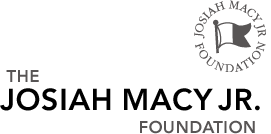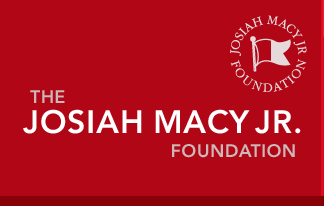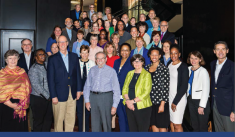Our Grantees
Across the Foundation’s priority areas, our grantees are working to improve the health of the public through innovative research and programs. The Foundation awards up to 40 grants on a rotating schedule each year.
How are Teaching Hospitals and Teaching Health Centers Meeting Society’s Need?
Over a 24 month project period, the Robert Graham Center/George Washington University will examine two aspects of the health profession workforce: 1) physician graduate medical education and 2) Teaching Health Centers, and further developing a successful web tool to enhance its capacity to be a resource for information and communication on these issues.
Physician Graduate Medical Education
With support from the Macy Foundation, the George Washington University and the Robert Graham Center developed a social accountability ranking process for medical schools. This effort was designed to help regional and national policy makers understand the impact of their investments in training relative to the needs of their constituents. It is within the graduate medical education (GME) system that both the size and specialty make-up of the physician workforces are determined. The GW and Graham Center teams recognize the need to do similar social accountability work with residency programs, especially in light of recent efforts to expand residency training programs and increase Medicare investment in training by several billion dollars.
They proposed to:
- Measure and rank the social accountability of residency training institutions, taking into account specialty resident complements, primary care and general surgery output, practice in underserved areas, migration out of state; and
- Assess whether training residents in hospitals with higher Medicare costs practice in areas with similar, high health care costs.
Teaching Health Centers
While patient care increasingly occurs in ambulatory settings, medical education occurs mainly in inpatient hospital facilities, producing a physician workforce whose skills and experience are poorly matched to the primary care needs of the population. Teaching Health Centers (THCs) place the focus of residency training into the community-based ambulatory care setting. Teaching in these sites better prepares graduates for primary care underserved practice and promotes long term recruitment and retention of health centers.
They proposed to:
- Develop a taxonomy for the Teaching Health Center model; and
- Assess which institutions and programs are training residents in Community and Rural Health Centers, how many residents are participating, and to what degree these experiences are associated with those physicians practicing in underserved settings after training.
Publications:
- Teaching Health Centers: A New Paradigm in Graduate Medical Education, Academic Medicine: December 2012
- The Redistribution Of Graduate Medical Education Positions In 2005 Failed To Boost Primary Care Or Rural Training, Health Affairs: January 2013
- Toward Graduate Medical Education (GME) Accountability: Measuring the Outcomes of GME Institutions, Academic Medicine: June 2013




 11.13.18
11.13.18